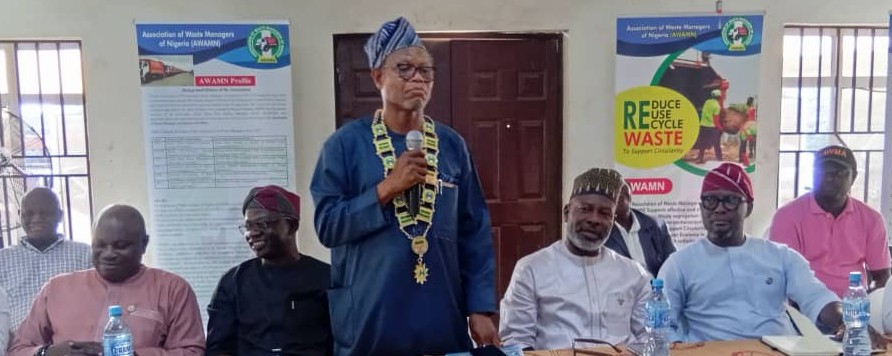Agency Report
The Association of Waste Managers of Nigeria (AWAMN) has appealed for the reduction of the 25 per cent remittance to the Lagos Waste Management Authority (LAWMA).
AWAMN President, Mr Olugbenga Adebola, made the appeal on Thursday in Lagos, while speaking with newsmen, after the unveiling of the association’s planned conference, with the theme: “Redefining Integrated Waste Management In Nigeria Through Circular Economy”.
Adebola said that the 25 per cent remittance was an arrangement between the association and government, of which after working, LAWMA would get certain percentage .
He said that in view of the current economic situation, and the inflationary effect on the gamut of all operations, not only within waste management, it was extremely difficult for the waste managers to maintain the cost of doing things.
“The cost of doing business in Nigeria is going higher. If the cost of doing business is going higher and we keep on paying the 25 per cent to government, then we are not making anything.
“That is why, in order to help our members to be sustainable in the industry, we appeal to Lagos State Government to reduce our 25 per cent to 10 per cent so that our people can make profit.
“Right now, the profitability has been eroded by that 25 per cent. so it’s like, you go and work and you get the money, you just give it to government, and then the operators don’t have anything at the end of it all,” the president said.
According to him, due to the present situation, even the Federal Government is reducing all the amount of taxes.
“So it’s just simple economics that, in view of the current increment in the cost of operation, there is a need for us to re-engineer our cost activities.
“We need to re-engineer our cost recovery. We need to re-engineer even the sharing formula, and that is what we are saying,” he said.
Responding, the Managing Director of LAWMA, Dr Muyiwa Gbadegesin, said that the 25 per cent was part of the contract agreement LAWMA had with the waste managers.
Gbadegesin said that the money was meant to be a cross subsidy for low income areas that don’t pay for waste evacuation.
“That is why we have it. So, we look into the issues, and like I said, there is a need for us to take a holistic approach, look at the cost of managing waste statewide.
“We will look at how we can efficiently make funds available, so that they will be able to do their work well, and ensure that people are paying an affordable rate that will guarantee timely and efficient evacuation of waste from the household,” he said.


